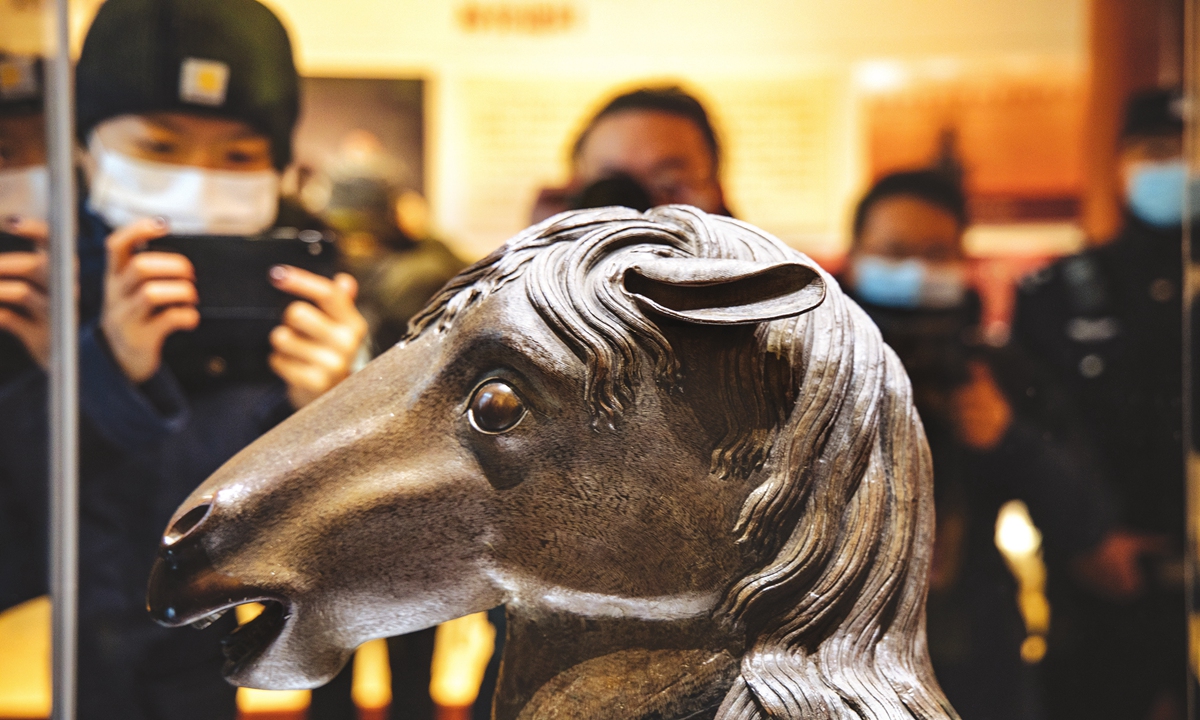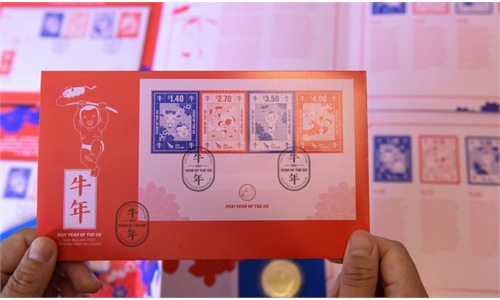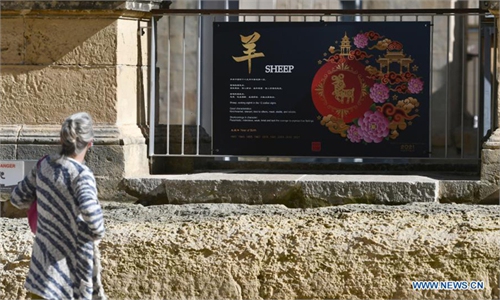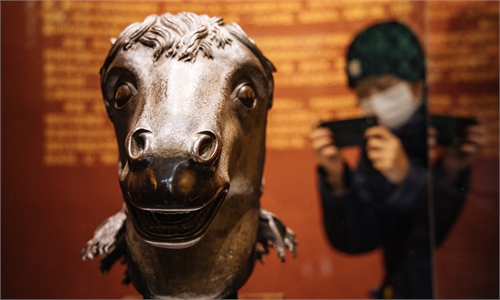
Visitors take pictures of the bronze horse zodiac head that was stolen by invading forces when British and French troops razed the Old Summer Palace in 1860. The statue finally returned to its home, Yuanmingyuan, or the Old Summer Palace. Photo: Li Hao/GT
China will continue to recover cultural relics in various ways, including the promotion of improved laws in China and abroad, and international cooperation in cracking down on the trafficking of cultural relics, a senior political advisor said on Wednesday.
Liu Yuzhu, a member of the Chinese People's Political Consultative Conference and head of the National Cultural Heritage Administration (NCHA), said that the NCHA will actively help perfect the related domestic laws and strengthen control over the entry and exit of cultural relics.
China will promote the improvement of international rules, take the initiative to participate in the work of the UNESCO Convention 1970 Against Illicit Trafficking, and publicize China's best practices in recovery and return work, Liu said.
The administration will further promote the signing of bilateral agreements with foreign countries and strengthen coordination with multilateral organizations to facilitate the recovery work, according to Liu.
China has signed bilateral treaties with dozens of countries to promote the repatriation of cultural relics. All these treaties are highly enforceable, which is an important reason for China's successful recovery of cultural relics in recent years, Huo Zhengxin, an expert on art repatriation and law professor at the China University of Political Science and Law, told the Global Times on Wednesday.
"China's ability to recover cultural relics has been greatly enhanced over the years through multilateral international enforcement and diplomatic channels," he said.
Huo pointed out the challenges in China's cultural relics repatriation efforts. "International laws still don't provide enough legal support for cultural relics that were lost or looted long time ago, even though they have been substantially revised," he said.
In December 2020, the return of a bronze horse zodiac head to its home at Yuanmingyuan (the Old Summer Palace) was a crucial step in the homecoming of important cultural relics stolen by invaders more than 100 years ago, and many Chinese netizens viewed the return as a symbol of "washing off national humiliation."
While promoting the return of Chinese cultural relics, the administration also has plans for cultural relic exchange projects during the 14th Five-Year Plan period (2021-25).
Liu said that the NCHA will build a Chinese brand for the international exchange and cooperation of cultural relics, participate in global governance of cultural heritage, and promote international rules for recovery and return of cultural relics to a more equitable and just direction.




